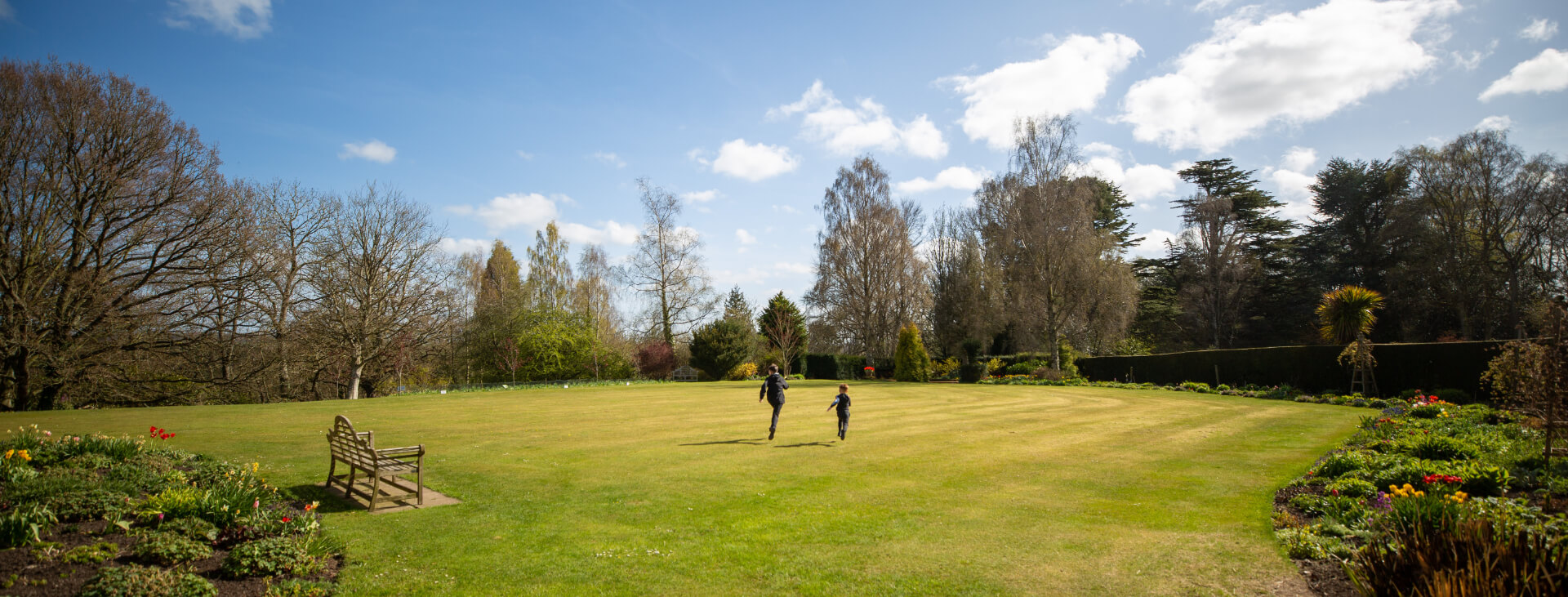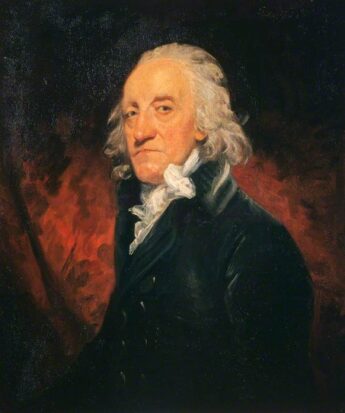Escape from Politics

If you are seeking a peaceful haven away from the turmoil of this month’s general election, it would be hard to find somewhere that seems more removed from politics than Paxton House. Seek solace in our peaceful grounds and in the healing power of nature or find a different perspective by delving into history on a tour of the house.
Don’t be fooled though, politics has not always been far from our doors. In the early days of Paxton House, Patrick Home of Billie, who built our Palladian mansion, was MP for Berwickshire for a dozen years from 1784 to 1796. Patrick was a supporter of the new Prime Minister, William Pitt the Younger, and an advocate of parliamentary reform. This made him a Tory in eighteenth century terms, although the Great Reform Bill was eventually passed by a Whig government in 1832, twenty four years after Patrick Home’s death. It was this bill which gave all middle class men a vote and reorganised the country’s  constituencies to reflect population shifts into industrial towns. Patrick Home had avoided politics up to this point and his sudden enthusiasm for the voters of Berwickshire may have been partly inspired by his wish to create local influence for his cousin Ninian who was busy establishing himself as a plantation owner in the West Indies. Ninian hoped to advance himself by building a profitable business growing sugar using the enforced labour of enslaved African people, eventually earning enough to purchase Paxton House. His cousin Patrick meanwhile had secured the patronage of Henry Dundas, a central figure in the Scottish Enlightenment and the man who wielded the strongest political influence in Scotland in this period. It was the relationship with Dundas which helped Ninian Home to become Governor of Grenada in 1792. In his later years, Patrick was something of a recluse and, if he hadn’t been persuaded by his extended family, would probably have resigned before the 1790 general election. When Ninian Home was killed in an uprising on Grenada in 1795, Patrick Home gave up his seat having voted against the abolition of slavery. He had, however, done his duty as an MP; a contemporary wrote to reassure him, “I never heard of any murmur or even innuendo of your having fallen short of your duty as our representative.”
constituencies to reflect population shifts into industrial towns. Patrick Home had avoided politics up to this point and his sudden enthusiasm for the voters of Berwickshire may have been partly inspired by his wish to create local influence for his cousin Ninian who was busy establishing himself as a plantation owner in the West Indies. Ninian hoped to advance himself by building a profitable business growing sugar using the enforced labour of enslaved African people, eventually earning enough to purchase Paxton House. His cousin Patrick meanwhile had secured the patronage of Henry Dundas, a central figure in the Scottish Enlightenment and the man who wielded the strongest political influence in Scotland in this period. It was the relationship with Dundas which helped Ninian Home to become Governor of Grenada in 1792. In his later years, Patrick was something of a recluse and, if he hadn’t been persuaded by his extended family, would probably have resigned before the 1790 general election. When Ninian Home was killed in an uprising on Grenada in 1795, Patrick Home gave up his seat having voted against the abolition of slavery. He had, however, done his duty as an MP; a contemporary wrote to reassure him, “I never heard of any murmur or even innuendo of your having fallen short of your duty as our representative.”
Paxton House was briefly touched by politics in 1820 when Sir David Milne, whose fine portrait by Henry Raeburn hangs in the Library today, spent £5000 standing for election as MP for Berwickshire. He briefly held office but his election was overturned the same year because he had delayed the vote in order to wait for a steamship carrying supporters from London. His wife, Agnes wrote, ” I feel relieved today to know that this election is over, and you are no longer MP. As to the money, let it go, we can do without it.” Despite these words of comfort, he continued to dabble in politics, with the support of George Home of Paxton, until 1835, although he never succeeded in being elected to Parliament.
 Another century would go by until another member of the Home family of Paxton House would become embroiled in politics. John Home Robertson was brought up at Paxton House in the 1950s. He stood for parliament as a Labour party candidate for Berwickshire in the 1978 general election. He remained in the House of Commons until 2001, winning six elections for Berwickshire and the new constituency of East Lothian. John was a long time campaigner for Scottish devolution and stood as an MSP from 1999, where he was Deputy Minister for Rural Affairs. He retired from politics in 2007. Inheriting Paxton House on the death of his mother, John Home Robertson decided, in 1988, to set up the Paxton Trust and give his historic family home and its remarkable collections to the nation. He remains an active Trustee.
Another century would go by until another member of the Home family of Paxton House would become embroiled in politics. John Home Robertson was brought up at Paxton House in the 1950s. He stood for parliament as a Labour party candidate for Berwickshire in the 1978 general election. He remained in the House of Commons until 2001, winning six elections for Berwickshire and the new constituency of East Lothian. John was a long time campaigner for Scottish devolution and stood as an MSP from 1999, where he was Deputy Minister for Rural Affairs. He retired from politics in 2007. Inheriting Paxton House on the death of his mother, John Home Robertson decided, in 1988, to set up the Paxton Trust and give his historic family home and its remarkable collections to the nation. He remains an active Trustee.
The survival of Paxton House, with its unrivalled collections of Chippendale furniture, eighteenth century costume and its national art collection, reminds us all that this nation has something more to offer than politics. Now is a great time to explore our heritage or just get away from all the argument. Visit us to enjoy the peace of nature on the banks of the river Tweed in Paxton’s eighteenth century landscape. We’ve put politics behind us.
